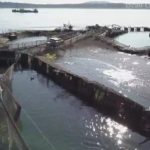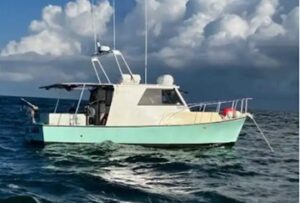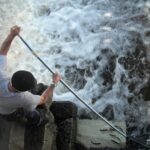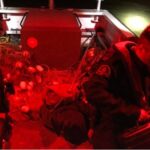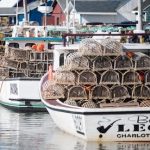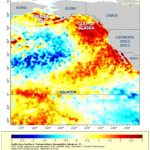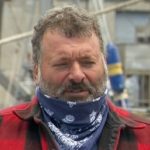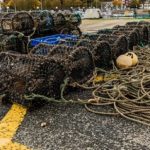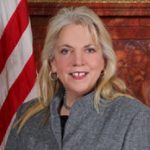Tag Archives: Bristol Bay
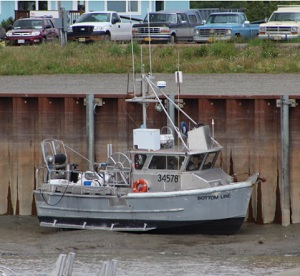
Bristol Bay sockeye a high point in the state’s unpredictable salmon season
More than 58 million sockeye salmon returned to Bristol Bay this summer. It’s another in a series of enormous runs to the fishery. The commercial harvest was just as impressive,,, many other areas of the state were far below their forecast. Across all species, the value of the state’s commercial salmon season dropped more than 50% from last year — 56% below last year. 2020 was valued at $295.2 million, while last year was valued at $673.4 million. Harvests were also down by 44%. >click to read< 12:42
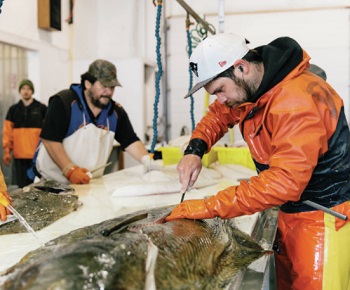
Some bright spots for high-value salmon, halibut in 2021
Following the trend of the last several years, the salmon forecast for the 2021 salmon season in Bristol Bay looks positive. The Alaska Department of Fish and Game is forecasting a total return of about 51 million sockeye salmon, with an inshore run of about 50 million. That’s about 6 percent better than the average for the last decade and 45 percent greater than the long-term average.,, Halibut outlook – Stock numbers in the Pacific halibut fishery are overall still declining, but there are individual bright spots in some regions. >click to read< 10:43
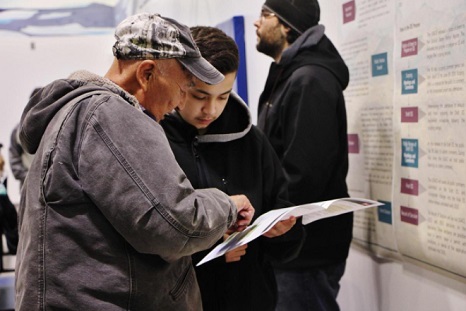
Relief and disappointment: Bristol Bay reacts to Army Corps of Engineers Pebble permit denial
Pebble Mine has been stopped, likely for good. The debate around the mine has consumed Bristol Bay for more than a decade. Now the people who live here are coming to terms with the news. “I was ecstatic. I was elated. I was so happy to hear that it was finally over,” said Billy Trefon, Jr. from Nondalton,,, But for those who backed the project, the decision comes as a harsh blow. Sue Anelon works for the Iliamna Development Corporation. Iliamna is another community close to where the mine would have been. Anelon says the area is economically depressed. She sees the Army Corps’ denial as a bad decision for the state as well as the Lake Iliamna region. “I’m very worried right now, because there’s a lot of people without jobs — they’re depending on the government,” she said. >click to read< 11:31
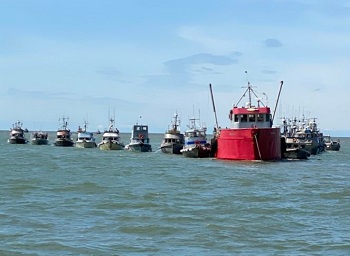
2020 commercial salmon catch, and value took a dive
Commercial salmon harvests proved challenging for the 2020 season, challenged by a global pandemic of the novel coronavirus, with the overall fish catch and its value down considerably from a year earlier. Data released on Monday, Nov. 9 by the Alaska Department of Fish and Game, said the all species harvest has an approximate value of $295.2 million, down 56 percent from $673.4 million in 2019. Fishermen delivered some 116.8 million fish, a 44 percent drop from the 208.3 harvested a year earlier, the report said. >click to read< 18:15
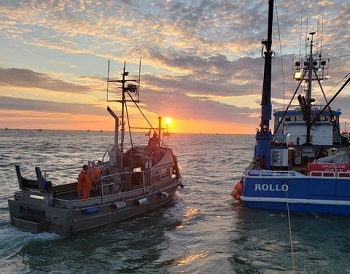
Minnesota family spends summers fishing Alaskan salmon to sell back home
The Rogotzkes, brothers Jay and Tom, dad Roger and uncle Dave, all run their own boats in Bristol Bay, home to the world’s largest sockeye salmon run. The Rogotzkes fish in 32-foot aluminum boats that drift freely, even with 900 feet of net trailing. It was Roger who got the family started in the unlikely profession more than 40 years ago. Back in college in 1980, Roger read about Bristol Bay in a magazine. Intrigued, he bought himself a plane ticket north the next summer. Two years later, in what the Rogotzkes now recognize as an astounding act of faith, Roger’s dad, Bob, mortgaged the family farm in Minnesota to buy his son a fishing boat and permit. That investment paid off, and two years later Bob did the same thing for his other son, Dave. “We really just owe everything to him,” Roger said. That makes this season bittersweet: Bob died in May, just before the four fishermen headed north. >click to read< 18:12
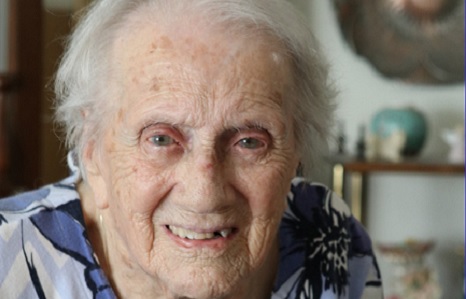
Happy 105th Birthday, Esther ‘Essie’ Lindeman
Born Sept. 15, 1915, Esther “Essie” Lindeman of Grants Pass experienced WWI as an infant, the Spanish flu pandemic when she was 3, reached adolescence during the Roaring ’20s and adulthood during the Great Depression in the 1930s. Most innovations that touch every aspect of our daily lives didn’t exist when Essie was growing up on a dairy farm in upstate New York. Radio was in its infancy, television was in the future, and the Internet and social media were unimaginable. Another interest crept into Essie’s life in the ’30s. A neighboring farm boy she “sorta liked” had left home for a commercial fishing adventure on Bristol Bay in Alaska.,, Happy Birthday, Essie! >click to read< 10:21
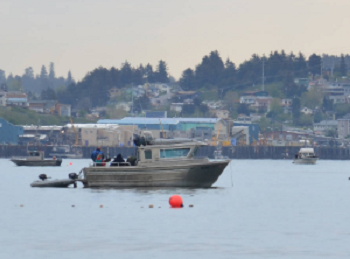
Bizarre salmon season winds down short of state projections
On top all the other effects of the coronavirus pandemic, it’s been a strange year for Alaska’s commercial salmon fisheries. As the fisheries are winding down, the total landings are about 17 percent behind the projections statewide. The Copper River sockeye run was a flop, as was the chum run statewide, and the silver salmon harvest was down everywhere except Kodiak and Bristol Bay. Prices were down, too, and processors had the extra expense and responsibility of keeping workers healthy in remote communities at close quarters. >click to read< 22:14
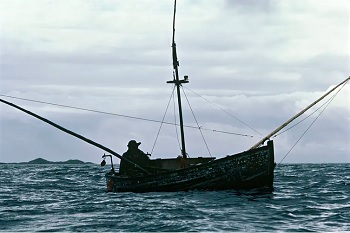
Evolving Business: Bristol Bay salmon fishery dealing with latest challenge, Coronavirus.
Wild salmon return from the ocean to restart a life cycle that has persisted for millions of years. Wild Alaska sockeye (a favorite species of salmon) is caught over the course of a four- to six-week season, from mid-June through July, when the largest remaining wild salmon population returns to Bristol Bay. But the fishermen, seafood processors and communities of Bristol Bay are under threat, and not for the first time. Bristol Bay carries painful memories of the 1918 Great Influenza, which devastated the local indigenous population. Now, the global economy has collapsed in the face of the COVID-19 pandemic, and the market for seafood, often eaten at restaurants, has collapsed along with it.,, And this happens at a time when farmed salmon is an ever-growing part of the industry. (In total conflict with this fishery) >click to read< 10:41

“The Case Against Alaska’s Pebble Mine” – Tucker Carlson goes after Pebble
Fox News pundit Tucker Carlson has become the latest influential conservative to voice concern about the proposed Pebble mine in southwest Alaska. Carlson said in his “The Case Against Alaska’s Pebble Mine” segment, there is a clear partisan split. But not with Pebble. “Suddenly,” Carlson said, “you are seeing a number of Republicans, including some prominent ones, including some very conservative Republicans, saying, ‘Hold on a moment, maybe Pebble mine is not a good idea. Maybe you should do whatever you can not to despoil nature. Maybe not all environmentalism is about climate.'” >click to read< 17:38
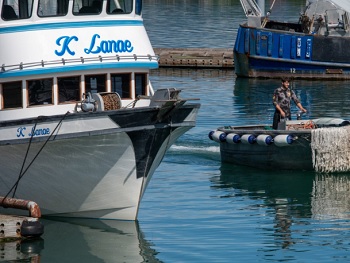
Humpy harvest in PWS surges to exceed 12M fish
Harvests of over 9 million pink salmon over the past week have pushed Alaska’s yearly total to over 25 million fish, including upwards of 12 million humpies caught in Prince William Sound. Alaska Department of Fish and Game finfish area management biologists in Cordova said the cumulative pink salmon harvest in the Sound through Aug. 1 alone was estimated at 10.5 million common property fish and 1.5 cost recovery fish. Preliminary commercial salmon harvest data compiled by ADF&G through Tuesday, Aug. 4, put the total commercial salmon harvest in Prince William Sound at 11.2 million fish, including 12.3 million pink, 1.9 million chum, 902,000 sockeye, 4,000 coho and 4,000 king salmon. >click to read< 19:03
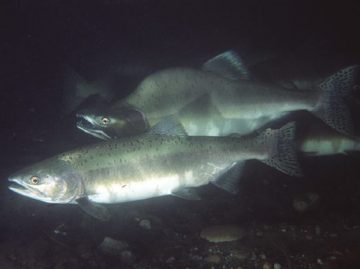
Humpy catch on the rise – ADF&G data shows PWS salmon harvest at over 9.4M fish
An estimated 800,000 were harvested in Prince William Sound on Sunday, July 19, boosting the cumulative pink salmon harvest to an estimated 5.6 million common property fish, and the overall estimated commercial catch for the fishery to 9.4 million salmon. Still fishery managers in the Cordova office of the Alaska Department of Fish and Game said that the Valdez Fisheries Development Association needs some 409,000 humpies for brood stock and has recommended a closure within Port Valdez. >click to read< 09:57
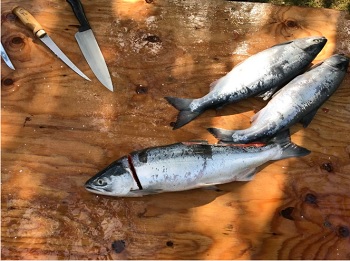
Bristol Bay Fisheries Report: July 24, 2020
A lull in returns today at 468,000 fish, the daily harvest bay-wide was about half what it was the day before. The total run is 55.9 million fish, about half a million away from last year’s. The U.S. Army Corps of Engineers has released the final environmental review for the proposed Pebble Mine. A Seattle-based seafood processor will pay out more than $440,000 to workers at a Bristol Bay cannery, the result of a settlement after the company was sued in June. “We think that it is a fair and just compensation for the workers that were held for 12 days at a hotel without being paid,” said Jonathan Davis, a managing partner of the San Francisco-based Arns Law Firm, which filed the lawsuit. The firm took on the case pro bono, so it will not receive any compensation for its work. The processor, North Pacific Seafoods, was sued for false imprisonment and failing to pay the workers, among other charges. >click to read< 15:30
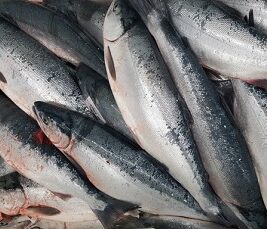
Bristol Bay salmon processors are starting to post base prices. They are extremely disappointing.
Fishermen have confirmed that Trident Seafoods, Red Salmon / North Pacific Seafoods, OBI Seafoods, and Peter Pan Seafoods have posted a base price of $0.70 per pound for sockeye. That’s just over half of last year’s base price of $1.35. “Well it’s — it’s ridiculous, because it’s not worth it at all. Because I’m putting all this money in,” says Alex, a captain from Wasilla who fishes for Peter Pan Seafoods. He declined to give his last name. Alex says that coming out of a tough season, he’s extremely disappointed with the prices. >click to read< 10:21
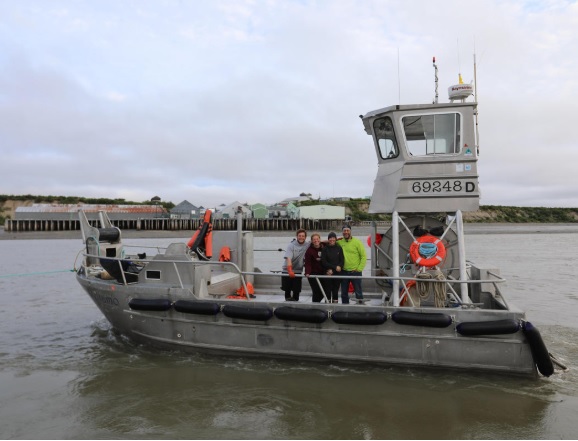
Bristol Bay Fisheries Report: July 20, 2020
At 52.6 million, the total bay-wide run is now almost four million above the preseason forecast. It’s also more than a million fish over where it was at this point last year! Almost half of the total run is in the Naknek-Kvichak — at 23 million fish, that district has seen the largest run in the bay, followed by Egegik, at 13.9 million fish. All rivers except Togiak have reached or exceeded their escapement goals. >click to read< 13:08
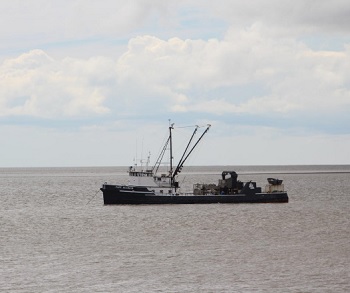
Bristol Bay Fisheries Report: July 11, 2020
The run in Bristol Bay is over 30 million fish, 30.8 million to be exact. Total harvest baywide was 2.1 million yesterday, bringing the season’s harvest in Bristol Bay to 20.9 million fish. Total escapement so far this season across the bay is 8.8 million. Fish per drift delivery saw a bit of a swing yesterday. Ugashik fishers averaged over 2,500 fish per delivery, the Naknek-Kvichak saw an average of over 1,000 fish per drift delivery, but other districts were between 180 and 700 fish per delivery. audio report, Messages to the fleet, >click to read< 17:26
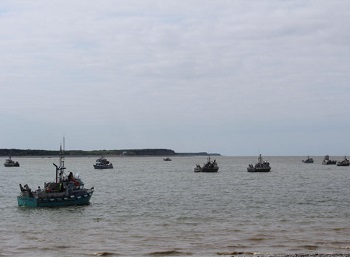
Bristol Bay Fisheries Report: July 5, 2020
The total harvest for the bay is around 1.2 million, as of yesterday. Taking a look across the bay, the total run is at around 8.5 million. The numbers seem to be picking up on the eastside again. The Nushagak district’s daily harvest was 165,000 yesterday, bringing the season’s harvest to 2.6 million. That was harvested 4% by Igushik set-netters, 26% from Nushagak set netters, and 70% from drifters. In the full Nushagak district, daily escapement was 36,800 yesterday. That makes the total escapement across the Nushagak district 1,056,000 Breaking that down by river system… audio, >click to read/listen< 14:57
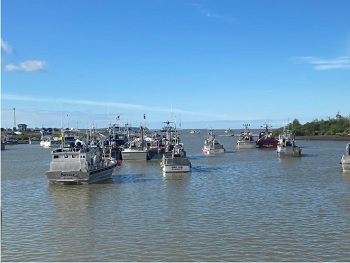
Bristol Bay Fisheries Report: July 4, 2020
A big bump of fish hit the Naknek-Kvichak and Egegik yesterday — those fleets caught most of the bay’s daily harvest of nearly 1.2 million. Total harvest around the bay is now approaching 5 million. Escapement yesterday was 140,000, and 1.8 million fish have escaped around the bay this season. The total run is at around 6.8 million. The Nushagak district’s daily harvest was 60,000 yesterday, bringing the season’s harvest to,,, Breaking that down by river system, audio report, >click to read< 07:25
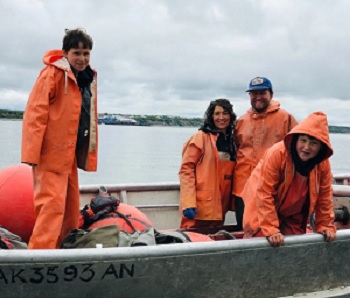
How Coronavirus Is Threatening Alaska’s Wild Salmon Fishing Season
A Brooklyn winemaker travels north to Bristol Bay each summer to net the red salmon that support his family. This year he’s faced with a tough ethical and economic choice. Mr. Nicolson, 45, spends much of the year working at Red Hook Winery in Brooklyn, where he is the managing winemaker, but his main income is drawn from Iliamna Fish Company. The business, which he and two cousins own, sells Alaska red salmon directly to thousands of shareholders, most of them in New York and Portland, Ore., as well as to a few high-end restaurants and stores, including the Park Slope Food Co-op in Brooklyn. >click to read< 19:25
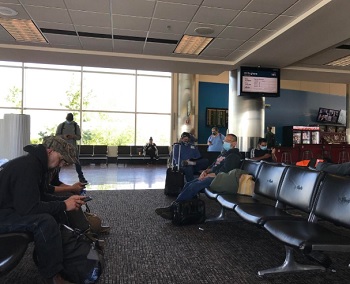
For fishermen traveling to Bristol Bay, Alaska Air confusion complicates early season
Alaska Air normally starts flying to the region June 1, but this spring it began on May 18th. It’s aiming for year-round service to the region. But the airline has struggled to regulate its schedule. I experienced this myself when I was making plans to come to Dillingham. I booked a flight from Portland to Anchorage, and then on to Dillingham on June 2. But about a week before my trip, I got an email saying that my flight was now headed from Portland to Seattle, Seattle to Anchorage — with no flight to Dillingham.,, Gregg Marxmiller, a Dillingham fisherman, said flights he had purchased for his crew-members were pushed back twice. He wasn’t notified either time. >audio report, click to read< 16:34
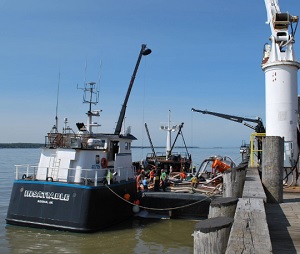
Salmon set to return, Poor Kenai king returns will restrict start of Cook Inlet, Copper River counts keep commercial fishing closed
The start of the massive Bristol Bay commercial sockeye fishery is fast approaching but this year is bringing with it a level of uncertainly rivaled by few others even in the volatile fishing industry. Fishery participants and observers generally expect a softer market and lower prices for Bristol Bay sockeye  due to several factors, >click to read<. Poor Kenai king returns will restrict start of Cook Inlet fishery – That means the fishing time for East Side Cook Inlet setnetters will be no more than 36 hours per week, as long as the sport gear and harvest restrictions remain in place, per the Board of Fisheries paired restrictions plan for the sport and commercial fisheries that are often in conflict. >click to read<. Copper River counts keep commercial fishing closed – There seems to be a decent chance commercial fishing in
due to several factors, >click to read<. Poor Kenai king returns will restrict start of Cook Inlet fishery – That means the fishing time for East Side Cook Inlet setnetters will be no more than 36 hours per week, as long as the sport gear and harvest restrictions remain in place, per the Board of Fisheries paired restrictions plan for the sport and commercial fisheries that are often in conflict. >click to read<. Copper River counts keep commercial fishing closed – There seems to be a decent chance commercial fishing in 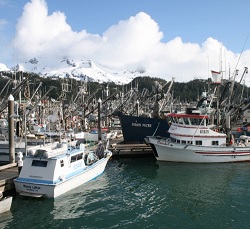 the Copper River District could resume soon despite a dismal start to the famed early season salmon fishery. >click to read< 16:26
the Copper River District could resume soon despite a dismal start to the famed early season salmon fishery. >click to read< 16:26
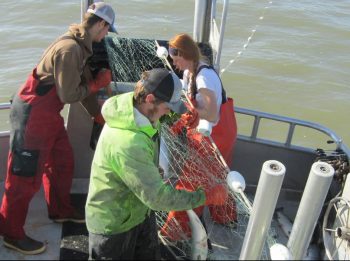
How one fisherman brings his wild salmon catch from Alaska to Missouri
Sean Guffey was studying communications at the University of Michigan when he drove to Alaska during the Exxon Valdez oil spill. Soon, he was on a fishing boat with scientists studying the impact of the spill. As he watched, Guffey learned from their observations and concerns about wildlife. Every year since, he has found his way back to Alaska. Today, he is the captain of Watermen, a boat docked in Bristol Bay. And every summer, he catches wild sockeye salmon and brings it back to Missouri to sell. photos, >click to read< 17:22
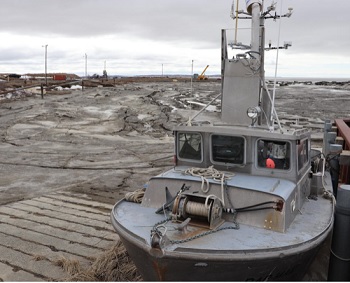
Dunleavy mandates strict guidelines for Bristol Bay commercial fishermen
The mandate targets independent fishing boats, many of which are operated by captains and crew who travel to Bristol Bay from outside Alaska. Specifically, it applies to those that have not “agreed to operate under a fleet-wide plan submitted by a company, association or entity” representing them. The new mandate also requires crewmembers to undergo verbal and physical screenings upon arrival — and they can’t have respiratory problems or fever. Crew members are allowed to quarantine onboard, though they’re still allowed to fish as long as they restrict contact with other boats and people on shore as much as possible. To protect communities, the mandate stipulates that crew can only leave the vessel for essential purposes. >click to read< 08:45
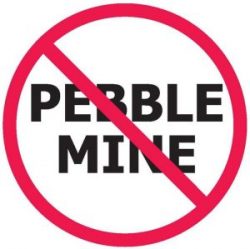
Fishermen concerned over Pebble employee appointed to Board of Fisheries
While communities and fishermen in Bristol Bay are facing an immediate challenge in deciding if and how to hold the $300 million salmon fishery in a few weeks, an appointment to the Board of Fisheries is adding to the stress felt by many in the region.,, Among the governor’s appointments is Abe Williams, who is an employee of the Pebble Partnership,,, Williams was born and raised in Naknek, currently lives in Anchorage, and is a fourth-generation Bristol Bay fisherman. However, his position on Pebble Mine has bothered both commercial and sport fishermen in Bristol Bay. Williams is currently the Director of Regional Affairs for the Pebble Partnership. >click to read< 12:14
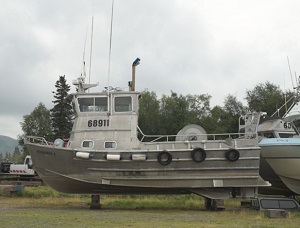
Coronavirus: Bristol Bay community leaders lay out minimum protocol needed to allow salmon season
Leaders of several major community organizations in Bristol Bay have issued a list of minimum protocols they expect to be in place before the commercial salmon fishery can take place this summer. Among other the protocol listed, fishermen and other seasonal workers would undergo a physical exam including a COVID-19 test with a negative result no more than 48 hours before traveling to the region. After arriving in Bristol Bay, the individuals would be transported to a quarantine location and remain in quarantine until a follow-up negative COVID-19 test is confirmed. The leaders listed out other expectations, including weekly health screenings, for the seafood industry to establish as minimum protocol for the 2020 season. >click to read< 11:12
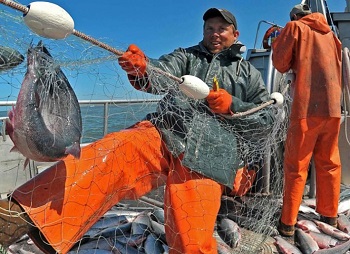
In This Remote Town Spring Means Salmon, and Thousands of Fisherman From Coronavirus Hot Spots
Later this spring, Alaska’s Bristol Bay will blossom into one of the largest annual salmon fisheries in the world. The regional population of about 6,600 will triple in size with the arrival of fishermen, crews and seasonal workers on jets but also private planes and small boats, many traveling from out of state. And yet the heart of the health care system in southwestern Alaska, in a corner of the state where the Spanish flu once orphaned a generation, is a 16-bed hospital in Dillingham operated by the Bristol Bay Area Health Corp. Only four beds are currently equipped for coronavirus patients. As of Wednesday, the hospital had a few dozen coronavirus tests for the entire Florida-sized region, tribal leaders said. >Click to read< 14:16

Coronavirus: Bristol Bay fishermen urged to delay travel to the region until at least May 1
On Thursday, the Bristol Bay Regional Seafood Development Association, which represents the Bristol Bay drift gillnet fleet, issued its first COVID-19 advisory to the fleet asking that non-local Bristol Bay Fishermen delay travel to the region until at least May 1 and listed the state mandated quarantine protocol for anyone who does travel to Alaska from out of state.,, Since Alaska enacted a limited entry permit system, the share of permits held locally by Bristol Bay residents has declined by more than 50 percent, according to a 2017 University of Alaska Fairbanks analysis. Many drift fishermen make the trip each summer from Washington, Oregon or California. >click to read< 07:49
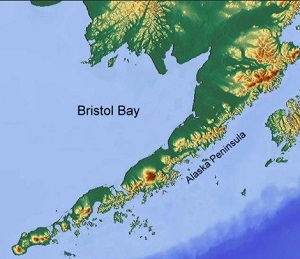
In America’s largest salmon fishery, preparations begin for coronavirus prevention ahead of the season
Around Bristol Bay, community leaders, health facilities and local entities are working to coordinate their preparations for the coronavirus. Thousands of fishermen, processors, and cannery workers will travel to Bristol Bay in the coming months to participate in the commercial fishery. As of Thursday afternoon, no one in the region had been tested for COVID-19, the disease caused by the coronavirus. Alaska’s first known case of the disease was announced Thursday afternoon. >click to read< 11:26
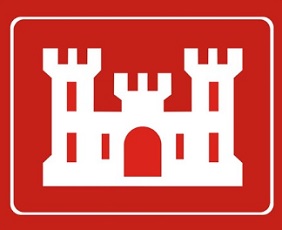
Record of decision on Pebble delayed to autumn 2020
A final environmental impact statement that will determine the future of a proposed copper, gold and molybdenum mine abutting the Bristol Bay watershed in Southwest Alaska has now been delayed until the summer of 2020. “The delay is caused by us deciding that we needed more time to refine our analysis, and to finalize the respond to the concerns raised through the public comment period,” said Sheila Newman, deputy chief of the regulatory division of the Corps. The final EIS was previously anticipated no later than the beginning of March. >click to read< 09:19
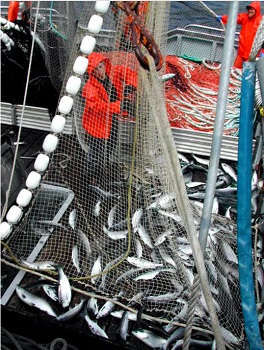
2020 Forecast: Bristol Bay still looks bright, but fishermen face cuts in cod, crab and halibut
Judging by the forecasts, 2020 could be an eventful year in Alaska’s commercial fisheries. Even though not all the forecasts and catch limits are rosy, there are some bright spots, such as an increased eastern Bering Sea snow crab total allowable catch and another promising forecast for Bristol Bay sockeye salmon. However, fishermen this winter are looking at tighter limits in some groundfish fisheries, particularly in the Gulf of Alaska. >click to read< 11:50
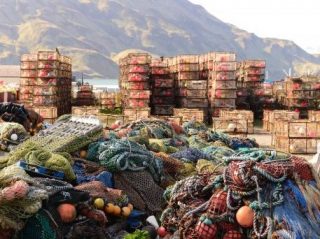
Bristol Bay red king crab fishery trends toward closure as fleet reports slow fishing, aging stock
This season, the 54-vessel fleet has reported slow, spotty fishing, and the stock continues to show signs of decline. The current quota — 3.8 million pounds — is the lowest since the fishery was rationalized in 2005. “A lot of boats had to scratch their way through the season,” said Ethan Nichols, assistant area management biologist with the Alaska Department of Fish and Game. “There were only one to two large schools of legal males that were reported to us from captains out on the grounds. So the season was definitely a bit of a grind.” >click to read< 20:18

































